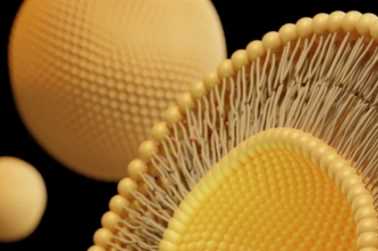Lifeasible's scientists have extensive experience in liposome development, covering a range of liposome applications, including technologies such as the encapsulation of small molecules. We have expertise in study design and in the development and validation of methods tailored to the characteristics of your liposome products. The data we generate can be used to support your ongoing quality control.

Liposomes are round, soft vesicles formed by one or more bilayer membranes that separate aqueous media from each other. The chemical composition of liposomes includes phospholipid molecules and cholesterol, among others. Different lipid components can modulate the process and biopharmaceutical parameters of colloidal vesicles, thus affecting the application of liposomes. To prepare liposomes with desired physicochemical properties, knowledge of various chemical and physical parameters of liposomes is required to ensure the optimal formulation.
Characterization of liposome products enhances quality control and thus ensures reproducibility. Assessing key quality attributes of liposomes, such as physicochemical properties, composition, and encapsulation efficiency, are critical to development. Based on our comprehensive liposome development platform, Lifeasible uses various techniques for liposome analysis to support liposome development.

Turbidity testing can be used to study the effects of peptide and other agent-induced aggregation, fusion, and micellization processes on changes in liposome size and structure. It can be used to characterize the various morphologies of liposomes to determine liposome size.
Liposome zeta potential measurements provide insight into liposome stability, cycle time, protein interactions, granule cell permeability, and biocompatibility. By circumventing surface charge correlations, the biological properties of liposomes can be improved.
Liposome composition testing plays an important role in botanical and medical research, as its composition affects membrane fluidity and ion channel function. Therefore, qualitative identification and quantitative analysis of liposome composition allow the analysis of their position in the organism.
The particle size and distribution of liposomes tested by dynamic light scattering techniques are important parameters affecting the loading of small molecules, which determines their efficacy and the stability of liposome solutions.
Lifeasible provides quality life science solutions to companies and research institutes, helping life scientists solve problems in research, development, and technology transformation, improving research efficiency, and accelerating the acquisition of research results. We have strong technical service strength and professional marketing and after-sales service team. In the future, we will continue to uphold the spirit of never-ending and advancing with the times, keep up with the development trend of the life science industry, and provide users with more excellent products and quality services. If you are interested in our services and products, please do not hesitate to contact us anytime.